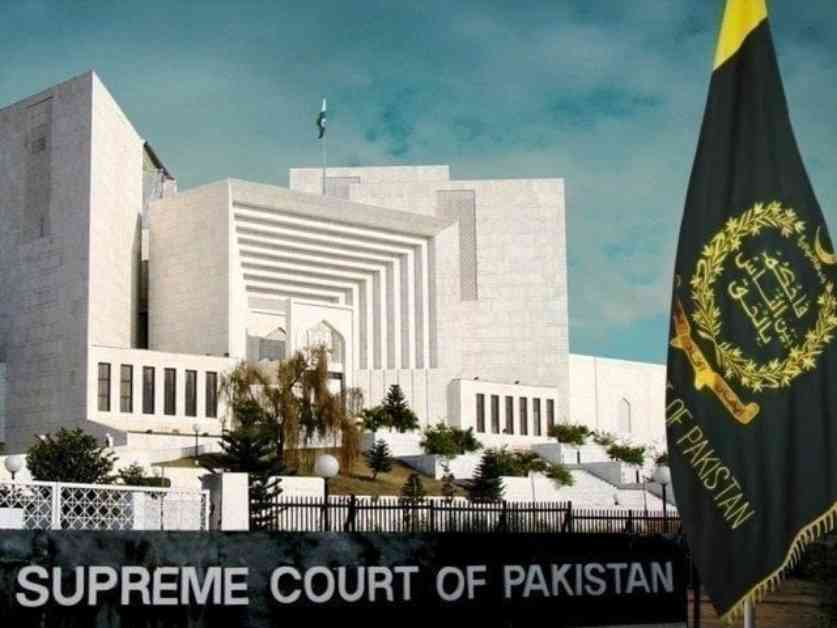The recent developments in the legal landscape have taken an intriguing turn as the Constitutional Bench (CB) has made a significant decision regarding the pending super tax appeals. This decision has sparked a heated debate among lawyers, specifically focusing on the government’s authority to impose such taxes and the role of the Supreme Court in transferring cases.
The heart of the matter lies in the fact that the government is unable to directly impose super tax, as stated by a prominent lawyer during the proceedings. The lawyer, Makhdoom Ali Khan, shed light on the constitutional implications of the issue, emphasizing that any tax imposed must be backed by solid justification and exceptional circumstances. Moreover, he drew attention to the Supreme Court’s stance on additional taxes, stressing that they have been deemed unlawful in previous rulings due to violations of fundamental rights.
The courtroom drama unfolded as the CB, led by Justice Amin-ud-Din Khan, deliberated on the transfer of pending appeals related to the super tax from the high courts to the Supreme Court. This move has set the stage for a potentially groundbreaking legal battle that could reshape the taxation landscape in the country.
Lawyers Argue for Constitutional Clarity
During the proceedings, Makhdoom Ali Khan eloquently presented his case, citing the constitutional amendments that grant the Supreme Court the authority to transfer pending cases. He underscored the importance of due process and highlighted the court’s power to act on oral requests, showcasing the judiciary’s commitment to upholding justice and fairness.
In a poignant moment, Justice Muhammad Ali Mazhar sought clarity on the procedural requirements for transferring cases, prompting a nuanced discussion on the legal intricacies involved. The courtroom ambiance was charged with anticipation as legal minds clashed over the interpretation of Article 187 and its implications for the pending appeals.
The legal wrangling reached a crescendo when the CB issued a decisive order to transfer the appeals to the Supreme Court, marking a crucial step in the ongoing legal saga. This ruling signifies a pivotal moment in the legal battle over the super tax, setting the tone for future deliberations and legal precedents.
The Road Ahead: Implications and Ramifications
As the dust settles on the courtroom drama, the implications of the CB’s decision reverberate across legal circles, sparking discussions on the broader ramifications of the case. Legal experts weigh in on the potential outcomes of the transferred appeals, analyzing the possible outcomes and legal precedents that could emerge from this landmark decision.
The public awaits with bated breath as the legal saga unfolds, with all eyes on the Supreme Court as it prepares to review the pending appeals and determine the fate of the super tax. The outcome of this legal battle could have far-reaching consequences for taxation policies and governmental powers, reshaping the legal landscape in profound ways.
In conclusion, the legal showdown over the super tax appeals underscores the complexities of constitutional law and the delicate balance of power between the government and the judiciary. As the legal battle rages on, one thing remains clear: the wheels of justice are turning, and the fate of the super tax hangs in the balance, awaiting the final verdict that will shape the future of taxation in the country.









